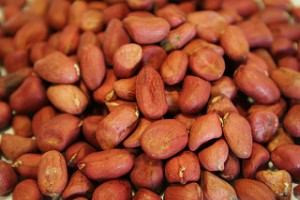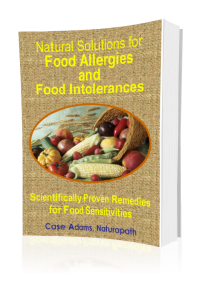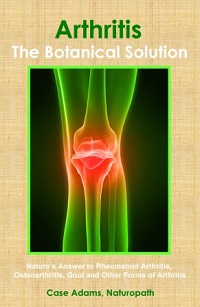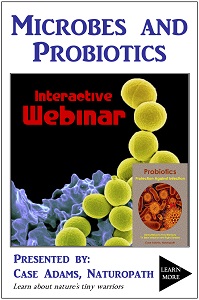Peanut Allergies Resolved by Immunotherapy and Probiotics

Photo by Johann Dréo
The evidence is mounting that immunotherapy and probiotics reverses food allergies.
My book about food allergies lays out some groundbreaking techniques for resolving food allergies based upon clinical experience and a series of research studies. These utilize a combination of strategies, which I clearly lay out in the book.
Well, as it turns out, one of the more important combinations of strategies I laid out has recently been the subject of a clinical study. And as I’ve found in my own research, my combination strategy works: And not just for a few.
In this article
Probiotics and immunotherapy
While my book covers a much broader format with additional aspects, the treatment I am speaking of is combining oral immunotherapy with probiotic treatment to resolve food allergies.
Food allergies are growing around the world and especially among first-world countries. The causes are complex, yet they can be identified – as I have done in the book.
If you are not sure what oral immunotherapy is, you might want to pick up a copy of the book. This is a topic that requires more depth and understanding that can be conveyed in a short internet article.
Anyway, with no further ado, I’ll get right into the research study that confirms my combination therapy.
Clinical study investigates allergy combination therapy
The research comes from medical scientists from Clinical Epidemiology and Biostatistics Unit of the Murdoch Children’s Research Institute at Australia’s University of Melbourne. And the study was published in the prestigious Journal of Allergy and Clinical Immunology.
The study write-up begins with the following preamble:
“Coadministration of a bacterial adjuvant with oral immunotherapy (OIT) has been suggested as a potential treatment for food allergy.”
By “bacterial adjuvant” the researchers mean a probiotic supplement. Most probiotics are bacteria. (A few are fungal, but most are bacterial.)
Yes – as mentioned above, this was suggested by me. While others may have landed on this, I was certainly the first to have published this in an internationally-available book, with a foundation of clinical research.
These medical researchers and clinicians with food allergy expertise conducted a double-blind, placebo-controlled and randomized study using 62 children who were clinically allergic to peanuts. The children were aged between one and ten years old.
The children’s allergies to peanuts were confirmed by using the skin wheal test – which measures the size of a skin response to the food. The children’s allergy responses were also tested using the skin prick test, IgE testing, IgG4 testing and desensitization testing. I explain how all these tests work in my book.
At any rate, the children were divided into two groups. They were randomly divided evenly among demographics, ages and wheal size to make the results meaningful. One group was given immunotherapy along with a Lactobacillus rhamnosus probiotic supplement. The other group was given a placebo.
The researchers then tested for the children’s allergic sensitivity to peanuts between two and five weeks after the treatments were discontinued. They also tested their immunoglobulins (IgE, IgG) along with skin prick testing afterwards to confirm their state of sensitivity.
The combination therapy works – incredibly well
The researchers found that an astounding 89.7 percent of the children given the combination probiotic/immunotherapy testing were desensitized. This means their allergies were resolved. They were no longer allergic, clinically or immunity-wise.
Furthermore, a phenomenal 82 percent of the children given the combination therapy had sustained resolution (desensitization) of their allergies. They tested the children for peanut allergies two to five weeks after the treatments were discontinued.
In comparison, only 7.1 percent of those receiving the placebo were resolved (desensitized) while a mere 3.6 percent of the placebo group were resolved on a sustained basis.
In their conclusion, the researchers wrote:
“This is the first randomized placebo-controlled trial evaluating the novel coadministration of a probiotic and peanut oral immunotherapy and assessing sustained unresponsiveness in children with peanut allergy. Probiotic-oral immunotherapy was effective in inducing possible sustained unresponsiveness and immune changes that suggest modulation of the peanut-specific immune response.”
Note that “sustained unresponsiveness” means a sustained lack of inflammatory response when eating or coming into contact with peanuts. And “the peanut-specific immune response” relates to the body’s inflammatory immune response that results after eating or coming into contact with peanuts. I discuss and define all of these aspects in my book.
Note also that while the researchers state that this is the first study of this combination therapy, this is not the first clinical study that indicates that the combination therapy should work. I lay all of this out in the book too.
I apologize if this article sounds like an ad for my book. It’s actually not. It’s just that if I tried to explain all of this stuff in an internet article, it would fill up a book. And I already wrote that book – and more: Because in the book I lay out all the stats, the different types of food allergies, the physiology of food allergies, the causes of food allergies, and a range of strategies aimed to permanently resolve a food allergy (including the combination strategy discussed above).
REFERENCES:
Tang ML, Ponsonby AL, Orsini F, Tey D, Robinson M, Su EL, Licciardi P, Burks W, Donath S. Administration of a probiotic with peanut oral immunotherapy: A randomized trial. J Allergy Clin Immunol. 2015 Mar;135(3):737-44.e8. doi: 10.1016/j.jaci.2014.11.034.
Adams C. Natural Solutions for Food Allergies and Food Intolerances. Logical Books, 2012.


















